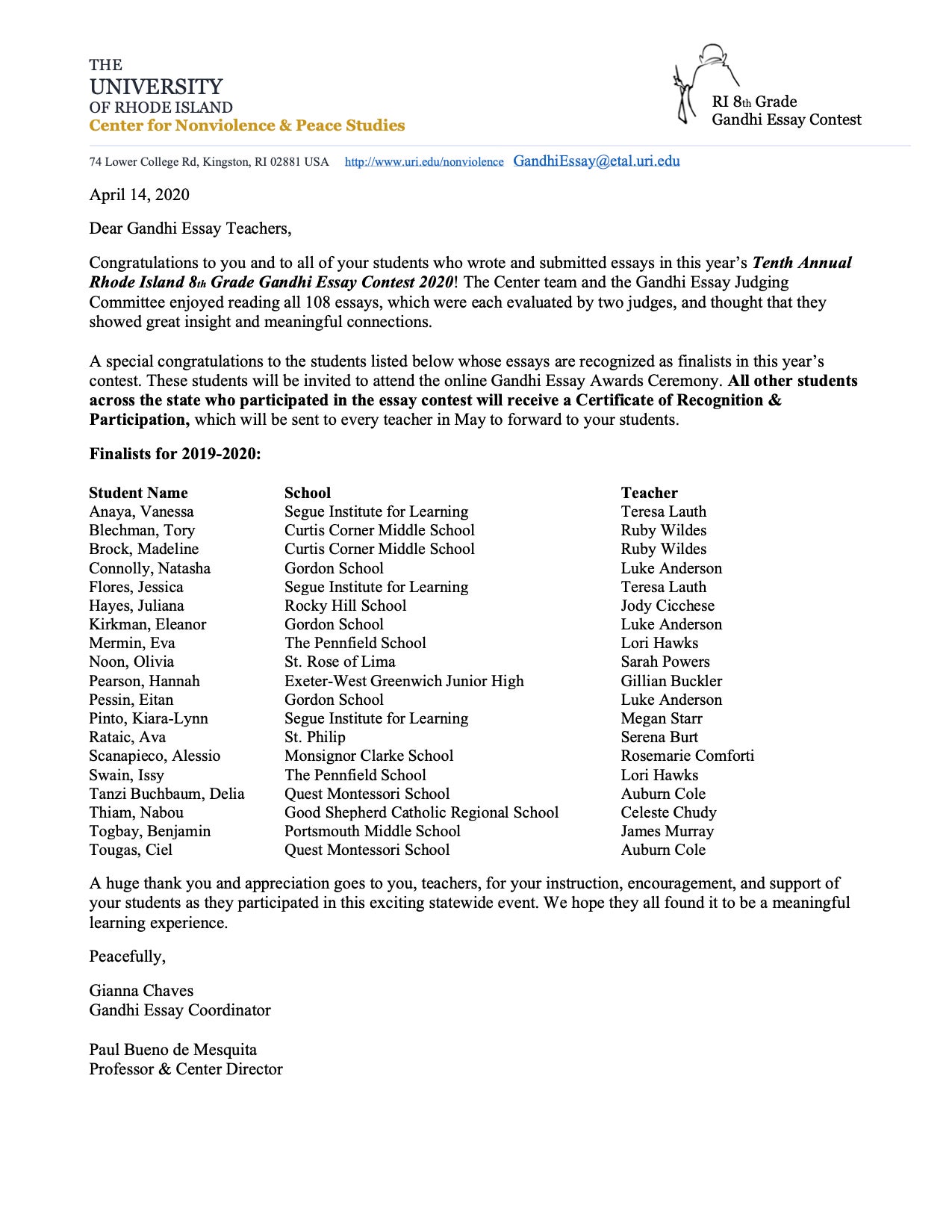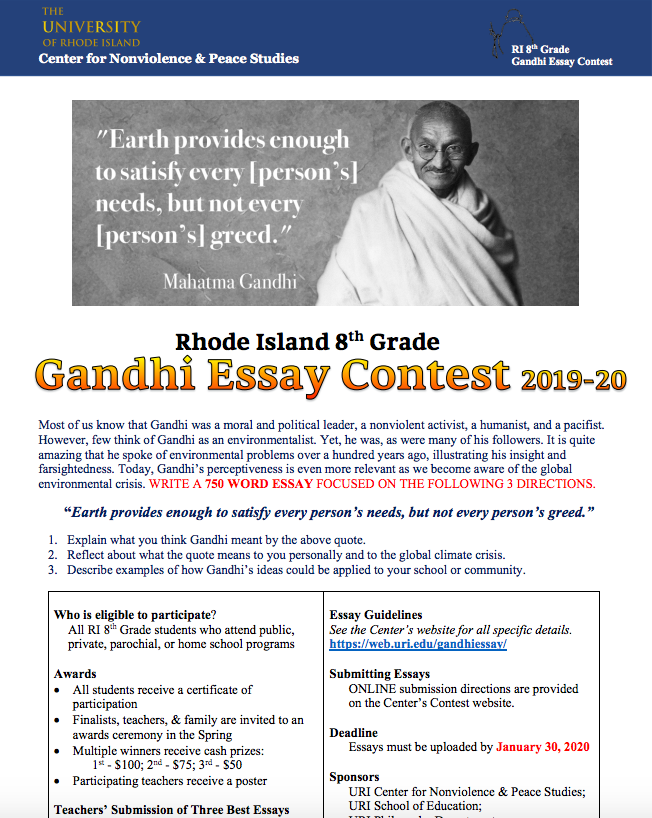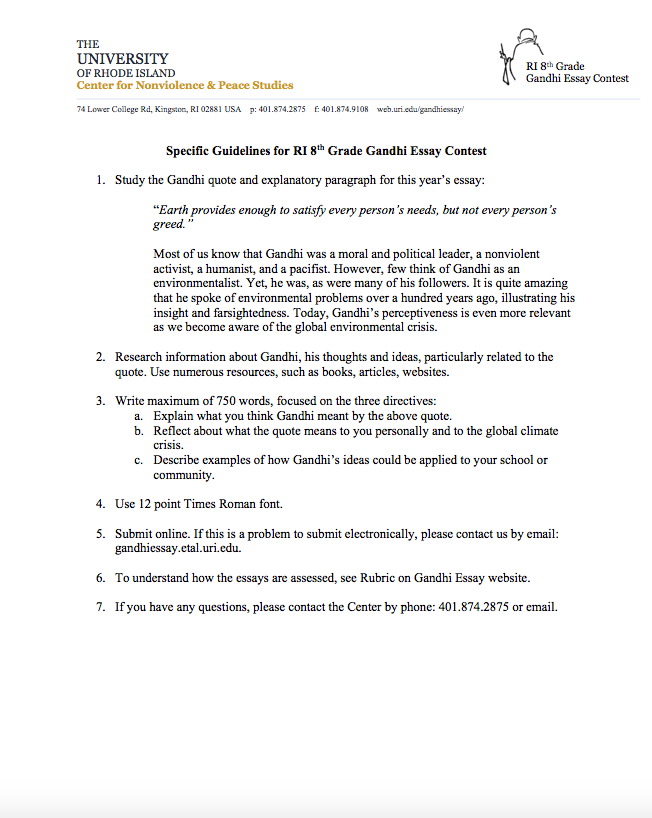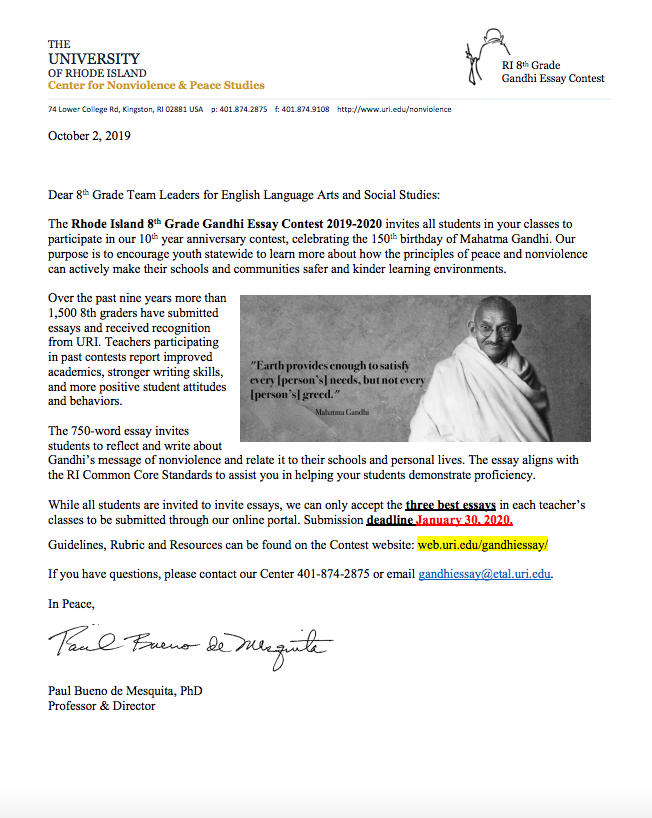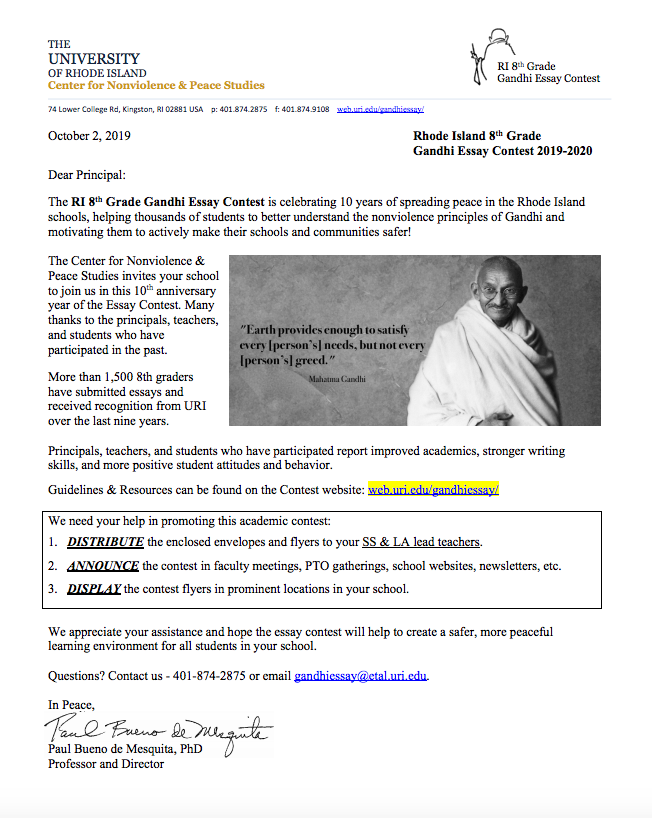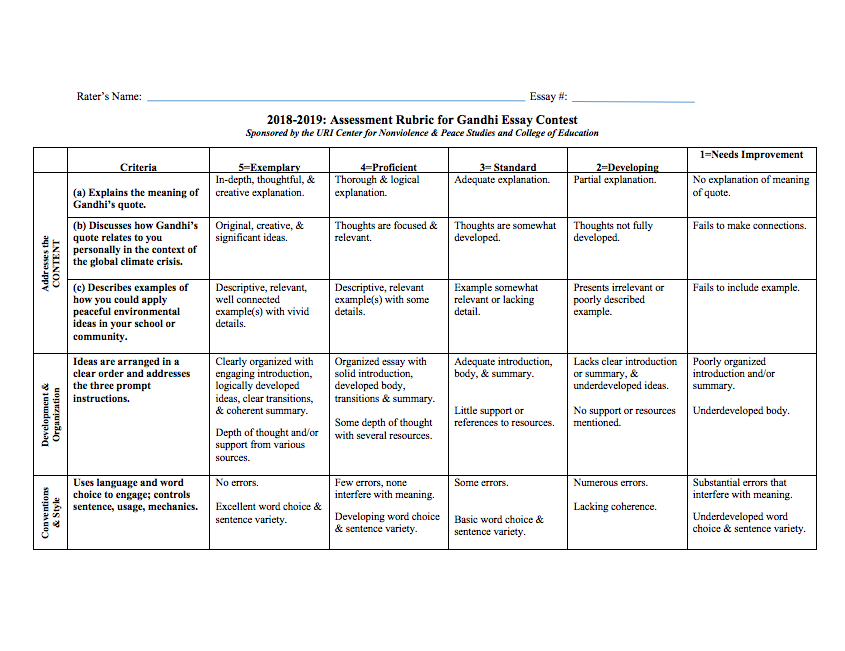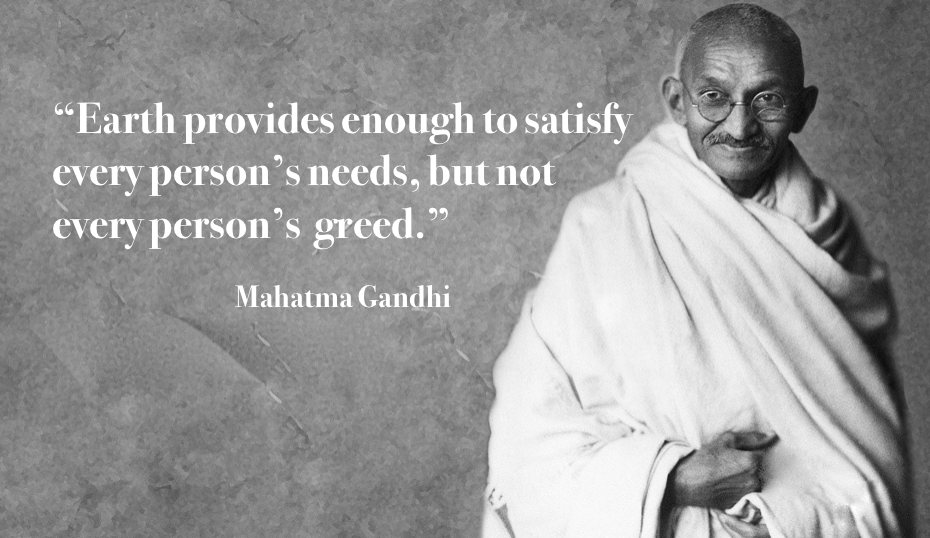
10th Anniversary!
The Center celebrated one decade of spreading peace in the Rhode Island schools, helping thousands of students to better understand the principles and philosophy of Gandhi!
Thanks to all of the teachers who guided students through this process, focusing on Gandhi’s words of wisdom and peace in their own classrooms.
This year, 2019-2020 we had 108 essay submissions! The essays were exceptional with many students telling about their own environmental activism.
Congratulations to the
Gandhi Essay Finalists & Winners!
Three 3rd Place Winners:
Natasha Connolly, Gordon School, Luke Anderson, Teacher
Kiara-Lynn Pinto, Segue Institute for Learning, Megan Starr, Teacher
Olivia Noon, St. Rose of Lima School, Sarah Powers, Teacher
Two 2nd Place Winners:
Madeline Brock, Curtis Corner Middle School, Ruby Wildes, Teacher
Issy Swain, The Pennfield School, Lori Hawks, Teacher
1st Place Champion:
Eva Mermin, The Pennfield School, Lori Hawks, Teacher
Text content
My Rainbow Rack by Pete Seeger
What is the Contest?
Each year the URI Center for Nonviolence & Peace Studies hosts the state-wide Rhode Island 8th Grade Gandhi Essay Contest. The purpose of this contest is to celebrate the life teachings of Mahatma Gandhi and to encourage Rhode Island students to think critically about, personally connect with, and to become nonviolent peacemakers in their schools and communities.
This is a special year for the Gandhi Essay Contest – it is our 10th Anniversary and also Gandhi’s 150th birthday. Over the past decade, we have had hundreds of essays submitted and are so pleased that students have researched, studied, and reflected about the important messages of peace and nonviolence believed and acted on by Gandhi.
This year’s prompt (2019-20):
“Earth provides enough to satisfy every [person’s] needs, but not every [person’s] greed.” – Mahatma Gandhi
Most of us know that Gandhi was a moral and political leader, a nonviolent activist, a humanist, and a pacifist. However few think of Gandhi as an environmentalist. Yet, he was, as were many of his followers. It is quite amazing that he spoke of environmental problems over a hundred years ago, illustrating his insight and farsightedness. Today, Gandhi’s perceptiveness is even more relevant as we become aware of the global environmental crisis.
For More information click on the following links:
sponsors:
The contest is an interdisciplinary collaboration among the URI Center for Nonviolence & Peace Studies and the URI College of Education and the URI Philosophy Department.
Thank you to all those teachers and students who have participated in the past and have helped to spread awareness of nonviolent and peaceful alternatives to conflicts, especially in our local and global communities today.
 Home
Home Browse
Browse Close
Close Events
Events Maps
Maps Email
Email Brightspace
Brightspace eCampus
eCampus



